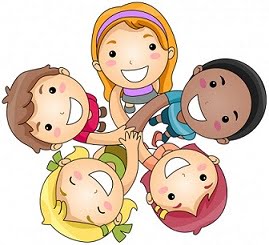Creative learning in schools in today’s educational arena is imperative, that is the requisite that tops the charts, it is the most essential, unavoidable and one can even say it is inescapable. Creative learning is the sweet nectar that a learner has to cultivate in order to sustain in this competitive world. Young learners today are confronted with this eternal contest, like a honey bee race where the only choice for survival is to win, ‘be a winner’ this is the only phrase that should be reverberating in their young minds.
Concentrate and ponder only about the resultant elixir
Creative learning not only fosters and kindles the child’s ability to learn but it also instructs and guides the child to be prompt with their work and doing away with procrastination. The little busy bee is expected to be so busy that the thought of procrastinating never occurs in their young minds, like the meticulous bee that flies from one flower to another collecting the sweet nectar pondering the honey that will be the end result of all this flying and collecting. Young learners must concentrate and ponder only about the resultant elixir while working hard to achieve that. Yes, be a hardworker.
Kinship and unity among the children

Creative learning in schools paves the way for kinship and unity among the children. The monotonous drone of a teacher teaching and the child listening – this scenario is replaced by the children exploring and widening their horizons under the guidance of the teacher or a facilitator. The child is no longer a solo learner, the activities given direct the child to participate and learn along with the other young learners in their immediate surroundings. Bees do not restrict themselves to a certain flower or a certain neighbourhood, they own the skies, the earth and all its beautiful blooms. Creative learning in school inculcates such symbiotic relationship that the child is never alone but in the company of their classmates all through their time at school that the child never feels ostracized.
The most positive outcome of creative learning in schools is avoiding the stigma of being ostracized. Creative learning fosters this attitude of companionship, each child is special in a certain way and creative learning aims to kindle and nurture that embedded creativity that no child is looked upon in a condescending manner or simply put down.
Knowledge should be gained and preserved for future
Creative learning in schools creates such an environment where the kids are not judged in a certain way. It has been said one should never judge a fish by its ability to climb a tree, a fish’s realm is water, creative learning aims to discover such realms and nurture that. It is constant knowledge gaining. Bees save the sweet nectar to relish later thus education should assist the child later, all the wise knowledge should be gained and preserved for future depicts the creative and architectural skills of animal nature. Lincoln has said, “The Best way to predict your future is to create it”, thus the child’s creative learning should help him/her to sculpt their future. It provides the tools to fashion out a master piece out of an insignificant rock.
Aspect of being individualistic and an active group performer
Creative learning in schools lays the foundation for being individualistic and someone who can work as a part of a large group, like the bee colony the team spirit leads to success – the state of togetherness. Bees have a hierarchy in their combs, not all bees are the same but all of them are an essential part of the colony. They work together to keep it as one single hive. This is the reason why we call them to be hive minded, though they are different, they converge at some point, they do think alike, which makes it possible for the bees to create a labyrinth and find their way out of it. Bees create their own dwellings; even the raw material is produced and manufactured by them.
Child learn the aspect of being / performing individualistic
Creative learning in schools makes it possible for a child to learn this aspect of being individualistic and yet an active group performer. Each and every child has to contribute for their hive to be successful in all possible ways, be it being clean or saving for the winter (that is doing things expecting the worse so that they remain unaffected) or whatever that is expected of them.
Fosters the attitude of appreciating
Creative learning in schools also fosters this attitude of appreciating what one has and it also teaches to give away to people who are in need. It is not about hoarding, but sharing. The teaching facilitator teaches addition and subtraction with chocolates and goodies, that the child at the end of the lesson knows the value of the object that he/she has been endowed with and is also ready to part with it because there are others who are less endowed and they do need it as well. Thus creative education in schools is pivotal and the keel for knowledge gaining
Author: Ms. Aarthi
Faculty, TCIS
